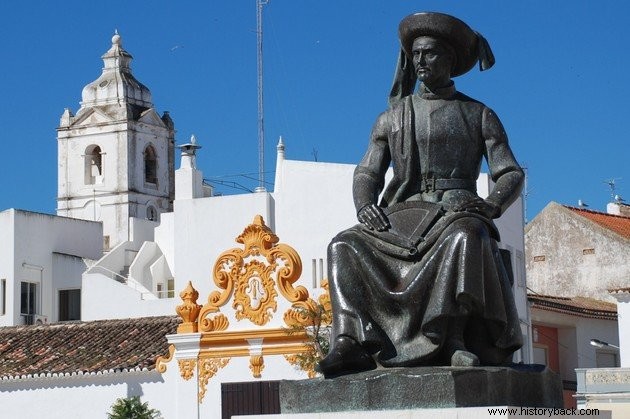The Sagres School would have been an institution founded by the Infante Dom Henrique, in the 15th century, with the aim of stimulating Portuguese navigations.
The existence of the school, however, is doubtful and was called into question in the 19th and 20th centuries.
Background
After the Conquest of Ceuta, navigation across the Atlantic became part of the Portuguese State's policy.
Infante Dom Henrique, Duke of Viseu, without the right to inherit the throne, shows interest in maritime voyages.
Thus, he asked his brother, the regent Dom Pedro (1392-1449), authorization to found a village in the Algarve, in 1443. With this, he obtained the monopoly of travel across the Atlantic.

The foundation letter, dated September 19, 1460, points out that the site would be used as a base to assist passing seamen.
They would have access to supplies and could wait for conditions favorable to navigation to continue on their way.
The Escola de Sagres did not exist as an institution as we know it today. However, the role of Infante Dom Henrique is undeniable in sponsoring several expeditions that will advance along the African coast until reaching the Indies.
With the death of the Infante, in 1460, his great-nephew and King Dom João II (1455-1495) continued to protect nautical studies.
See also:Portuguese NavigationsBuilding the Myth
The “legend” around the Escola de Sagres begins in the 16th century, when several chroniclers praise the performance of Dom Henrique.
In 1660, the Portuguese writer Dom Francisco Manoel (1608-1666), recounts the Infante's effort to found the village, something that was soon transformed into a "school".
Among the subjects taught at the School of Sagres would be astronomy, geography and cartography, taught by professors from all over Europe. However, there is no historical evidence that these people came or that they would have taught there.
The objective would be the preparation and teaching of technique to the navigators who provided service to the Infante.
Later accounts and works on Dom Henrique's life support the existence of the school where even the navigator Christopher Columbus would have studied.
Although without documents proving whether it existed or not, the School of Sagres was recorded in the narratives about the discoveries.
See also:The Great NavigationsDeconstruction
Only in the 19th century, Portuguese historians refuted the existence of the place, considering that the nautical activity of the time was governed by empirical knowledge.
Therefore, there was no need for in-depth studies by sailors on navigation techniques.
Later, in the 20th century, the thesis was that the school was a scientific academy, which was also deconstructed.
Whether it existed or not, the Escola de Sagres was the motivator for the nautical revolution promoted by the Portuguese in the 15th century.
Read more :
- European Maritime Expansion
- Discovery of Brazil
- African Periplus
- Portuguese Africa
